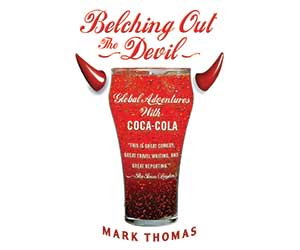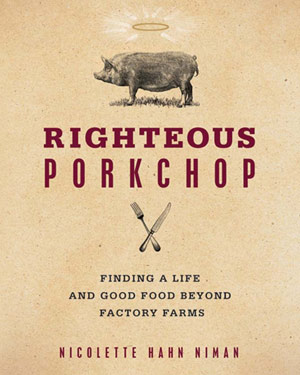
Like a lot of people, Mark Thomas grew up with a warm and fuzzy vision of Coca-Cola. (It reminded him of visiting his grandmother.) But familial memories weren’t the only reason for the positive vibe. Worth $65 billion, Coke’s brand is the world’s most valuable—and the company spends untold billions on advertising every year to keep its bubble of good will from bursting. “The brand,” writes Thomas, “is what transforms fizzy pop into Coca-Cola, that intangible bundle of images and feelings held within people’s minds.”
Thomas’ enthusiasm for Coke flattened when he discovered the human rights violations and environmental plundering that go into making the soft drink. In the infelicitously titled Belching Out the Devil, the British comic-turned-watchdog chronicles those atrocities, from death squads hired by a bottler in Colombia to assassinate unionists, to a water-hogging plant in drought-prone Rajasthan, India, to a rumored monopoly in Mexican groceries. Thomas is at his best when he channels Michael Moore and chases down Coke execs to hold them accountable for their supply-chain sins. He stumbles upon a legal loophole that Coke uses to absolve its American headquarters from blame: Since the soda is produced mainly by independent bottling plants abroad, Coke uses these foreign franchisees as fall guys.
The company claims that it strives to “make a positive difference and effective contribution to our shared world.” Thomas’ findings make that sugary PR-speak awfully hard to swallow.
















